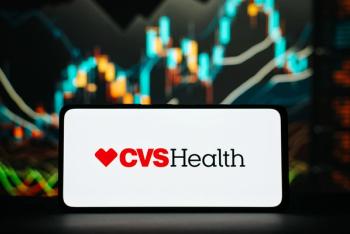
Employers not doing all they can to encourage generic usage
Employers like pharmacy benefit programs that encourage members to use generic equivalents—or do they? Two industry-sponsored studies show that the generic prescriptions are continuing to grow as a percentage of total prescriptions filled. However, another study of employer trends, by a nonprofit research firm, showed a decrease in the percentage of workers in the United States who belong to managed care plans that require the use of generic products when they are available.
In separate interviews with Drug Topics, several sources discussed their organizations' studies and their implications for pharmacists.
One pharmacy benefit manager, Express Scripts, found that, throughout the United States, the generic dispensing rate varied widely from state to state for its members (see figure and article).
"One reason the generic fill rate is high in Massachusetts is that the state mandates the use of generics," said Emily Cox, R.Ph., Ph.D., in a phone interview "Unless the prescribing physician specifies a brand name, the pharmacist is required to fill the prescription with a generic equivalent." Cox is the senior director of research at Express Scripts and is based in the company's headquarters in St. Louis.
On the other hand, a high proportion of New Jersey members belong to plans through their unions, and Cox feels that union-negotiated plans might have lower generic fill rates. It could be difficult to switch to the use of generic equivalents when a third party is involved, she said. "It's not that unions object to generic formulations per se, but they may object to perceived changes in healthcare benefits to their members," she said. "For example, a generic incentive program may be perceived as a change in the co-pay structure."
The data were for the year 2003. They were drawn from a database that consisted of ambulatory administrative pharmacy claims and eligibility information for a random sample of approximately three million commercially insured members of health plans that use Express Scripts as their PBM.
The study authors took into account the members' age, gender, and state of residence. The health plans that were included consisted of private- and public-sector employer groups, managed care organizations, third-party administrators, and unions. The authors excluded Medicare and Medicaid plans, as well as those that offered 100% co-pays. The generic fill rate was calculated as the total number of generic prescription claims divided by the total number of prescription claims.
"We did this study as a follow-up to data that we had gathered in 2001," Cox said. "Other results of the survey included survey information from consumers. A majority of our plan's members, based on a random sample, believe that generics are as effective as brand-name drugs."
The company also tracks overall generic dispensing rates on a quarterly basis. In the third quarter of 2004, the generic dispensing rate for its members was 51%. In third quarter 2003, generics constituted 48% of all Rxs filled for the company's members. Express Scripts acknowledges that it promotes the use of generic formulations in various ways. "Pharmacists' and consumers' interests are served by encouraging the use of generic formulations," said Cox. "We find that the use of generics lowers the cost of medications and, therefore, improves compliance by consumers." Because many brand-name drugs will go off patent in 2008, they expect to see generic drug use expand, she said.
Newsletter
Pharmacy practice is always changing. Stay ahead of the curve with the Drug Topics newsletter and get the latest drug information, industry trends, and patient care tips.























